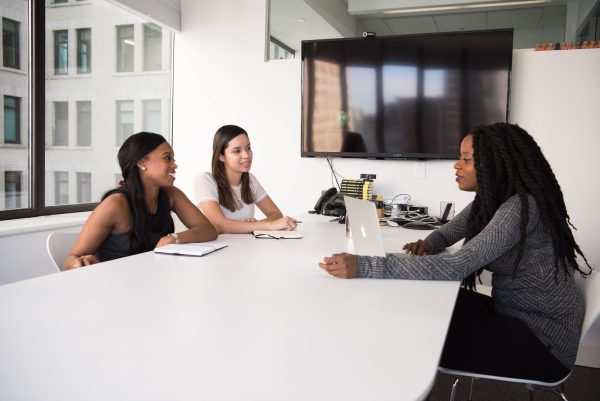Results Of Panel Interview Survey
Plus Additional Tips
Survey From Career Tips, 2018 Volume 2, February 2018

Last month I provided a link to my colleague Marshall J Karp’s 14 point checklist on how to succeed in panel interviews. I invited readers to complete a short survey on their own experiences, and 40 of you did. Here are the results:
From the candidate’s point of view:
- All but 2 of you had experienced panel interviews as a candidate.
- Half expressed a strong preference for a 1-on-1 over a panel. Most of the rest expressed no strong preference, while only 3 strongly preferred a panel.
- Almost 70% found a panel interview more challenging than 1-on-1, and nearly a quarter agreed with the statement “Extremely challenging, much more so than one-on-one.”
- Given that result, it’s not surprising that half expressed a strong preference for a 1-on-1, and only 3 strongly prefer a panel.
From the interviewer’s point of view:
- 22 of you had participated in a panel as an interviewer with quite varied results.
- Roughly 1/3rd felt that the panel gave a better sense of the candidate, 1/3rd felt the 1-on-1 gave a better sense, and the rest felt there wasn’t much difference.
- Despite those balanced views, almost half strongly preferred a 1-on-1 as an interviewer, and only 15% strongly preferred a panel.
OTHER OBSERVATIONS...
Helpful tips for the candidate:
- When you enter, introduce yourself and shake hands with each member of the panel. If they aren't automatically offered, ask for business cards. Place them in front of you, arranged in the way the members are seated.
- Make sure you have eye contact with the person who is asking the questions. As you answer include eye contact with others on the panel and end up with eye contact to the person who asked the question.
- Knowing the names and titles of those I will be interviewing with ahead of time is important for my preparation.
- More preparation is needed for panel interviews due to more minds involved asking you questions.
Helpful tips for the interviewers:
- Panel interviews give you more time to focus on the interviewee's body language and personality.
- A panel interview is only as good as the panel participants.
- The interviewing panel members need to agree on roles and discuss how to pass the ball to ensure a balance.
- I think panels allow more of the team to see the candidate. It may be more useful to test if someone is outgoing and able to deal with a group.
- The best from an interviewer’s perspective was with a panel that remained the same for specific types of candidates. Otherwise very disjointed with some on the attack and arguing among the panelists (in front of the candidate).
- I’ve only had two panel interviews, but I was not informed in advance. Interviews are stressful enough without being caught off guard and not being prepared for the different dynamic that a panel interview creates.
Other thoughts:
Panel interviews save time while providing the opportunity for direct communication with multiple people simultaneously. In contrast, the one-on-one interviewer is only capable of their specific point of view which may be biased, failing to interpret valuable information unless directly involved in the job. When the interview is with the person in need of the applicant's skills then it is time well spent with or without a panel.
The one panel interview I had was the best interview I've ever had. We all had a lot of fun, and they hired me as a consultant.
The panel came with carefully worded scripted questions, which they read, and quite frankly, I didn't understand the point of most of them. There was one panelist in articular who seemed to get glee in throwing me off... Although I initially really wanted to work for this company, after going through this and watching how employees interacted in the halls as I waited, I knew the culture was not a fit and actually refused a few contractor positions that I was offered.
I preferred being interviewed by a panel only in that it mixed the questions rather than one person drilling through the same line of questions. The thank you notes were a bear to write.
Phone panel interviews are the worst (or any phone interview). It’s difficult to know their reaction(s) to answers, as one does not get to assess the “non verbals”. It’s especially frustrating when the entire panel is silent after a response.
Too many people asking questions and giving answers. Interviewing process is difficult as it is without feeling like an interrogation.
Sign up for Career Tips and receive more articles like this every month!
